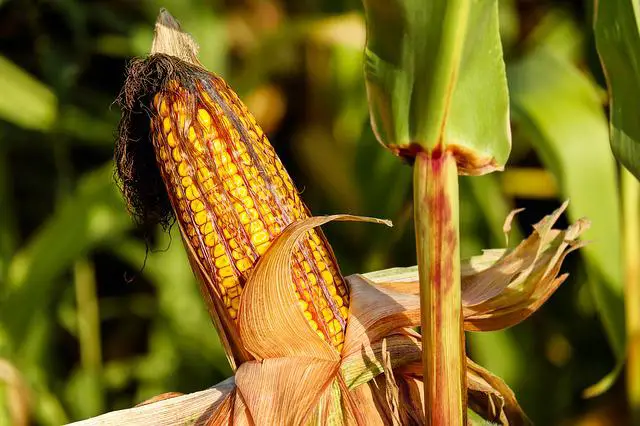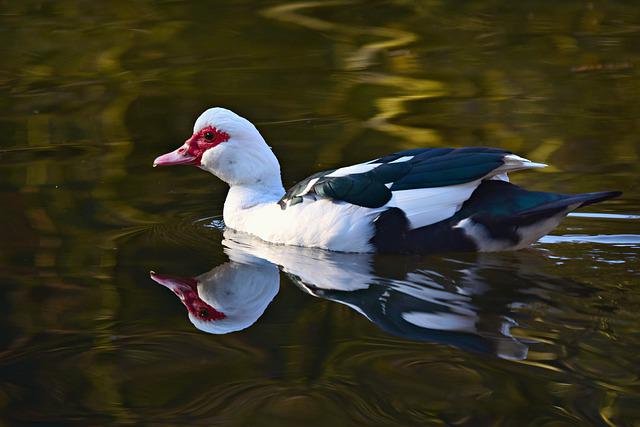What Do You Feed Muscovy Ducks
As an Amazon Associate I earn from qualifying purchases.
The Muscovy duck is a large waterfowl native to Mexico, Central, and South America. The males have long, curly tails and the females have shorter tails with a more rounded shape. The ducks are also known for their distinctive red-and-white plumage, which is why they are sometimes called "barbary" or "barbarian" ducks. Muscovy ducks are not related to the mallard, but they are thought to be descended from a common ancestor. So, what do Muscovy ducks eat? I will discuss it later.
Muscovy ducks are generally peaceful and can get along with other waterfowl, although they may fight with each other over food or nesting sites. They are also known to eat fish, frogs, and small mammals. Muscovy ducks are not migratory, but they will travel long distances to find food or mates.
This aquatic bird has easy-to-digest food items in its diet, which helps them live a long and healthy life. Duckweeds, water lilies, pondweeds, and wild rice are among their favorites. They also consume small insects, snails, and crustaceans to supplement their diet.
What Types of Food Do Muscovy Ducks eat?
Muscovy ducks are omnivorous, which means that they will eat a variety of different foods. Their diet consists of plant matter, such as seeds, grains, leaves, and fruits. They will also eat insects, small fish, and crustaceans. In captivity, these ducks typically eat a diet of pellets designed specifically for waterfowl.
However, their diet may vary in the wild depending on what is available. For instance, in areas with a lot of aquatic vegetation, they may consume more aquatic plants than in areas with less vegetation. Overall, Muscovy ducks are adaptable eaters that can adjust their diet to whatever is available in their environment. Here is some food that Muscovy ducks love:
1.Feed:
Muscovy ducks love to eat a mix of layer pellets and seeds. Layer pellets are a type of commercial duck food that is specifically formulated to provide Muscovy ducks with the nutrients they need. Muscovy ducks also enjoy eating various seeds, including sunflower seeds, pumpkin seeds, and flax seeds. In addition to pellets and seeds, Muscovy ducks will also eat various fruits and vegetables. Some of their favorites include lettuce, watermelon, cantaloupe, and grapes.

2.Insects:
Though they are not as common in the wild as in captivity, Muscovy ducks will also eat insects. In the wild, these ducks will eat various insects, including beetles, caterpillars, and crickets. In captivity, Muscovy ducks can be given mealworms as a treat. Mealworms are the larvae of the flour beetle, and they are a common food for captive reptiles and amphibians.
3.Small Fish:
Muscovy ducks will also eat small fish. In the wild, they typically eat minnows, but they will also eat other small fish if available. Muscovy ducks can be given live or frozen fish in captivity as a treat. You should thaw frozen fish before feeding it to Muscovy ducks.
4.Corn:
Corn is another food that Muscovy ducks enjoy. In the wild, they will eat whole ears of corn, as well as the kernels. In captivity, Muscovy ducks can be given cooked or uncooked corn. There are various ways to cook corn, including boiling, grilling, and baking.
5.Eggs:
Muscovy ducks will also eat eggs. In the wild, they typically eat the eggs of other birds, such as ducklings, but they will also eat chicken eggs if available. In captivity, Muscovy ducks can be given chicken eggs as a treat. You should cook eggs before feeding them to Muscovy ducks.
6.Treats:
You can also give muscovy ducks a variety of different treats. Treats should make up a small part of their diet, as they are typically high in fat. Some good treat options for Muscovy ducks include cooked rice, pasta, cereal, and oatmeal.
7.Supplements:
Muscovy ducks also need a source of calcium in their diet. They typically eat rocks and gravel in the wild to meet their calcium needs. In captivity, You can give muscovy ducks a calcium supplement in the form of crushed oyster shells. Calcium supplements should be given a free choice, meaning the ducks should have access to them at all times.
In addition to a calcium supplement, Muscovy ducks also need a source of vitamin D in their diet. They typically get vitamin D from exposure to sunlight. In captivity, You can give muscovy ducks a vitamin D supplement in the form of cod liver oil.
How Much Does Muscovy Ducks Eat?
Muscovy ducks are large waterfowl native to Mexico, Central and South America. The males can weigh up to 12 pounds (5.4 kg), and the females can weigh up to 8 pounds (3.6 kg). The ducks have black plumage with white patches on their wings and red bills and feet. Muscovy ducks are known for their voracious appetites and will eat just about anything they can get their hands on.
They primarily eat plants, insects, and small reptiles in the wild. However, they have been known to eat larger prey such as rodents and birds. In captivity, you should feed muscovy ducks a diet that consists of fresh vegetables, pellets, and occasional treats such as live insects or mealworms. It is important to give them access to clean water at all times to stay hydrated. Muscovy ducks are hearty eaters, but it is important not to overfeed them as this can lead to obesity and health problems.

When it comes to treats, Muscovy ducks enjoy a variety of different foods. Some good treat options for Muscovy ducks include cooked rice, pasta, cereal, and oatmeal. It is important to only give them treats in moderation, as they are typically high in fat. In addition to their regular diet, Muscovy ducks also need a source of calcium, and you can provide vitamin D.
Calcium in the form of crushed oyster shells. You can provide vitamin D in the form of cod liver oil. You should give these supplements a free choice, which means that the ducks should have access to them at all times.
How Do Muscovy Ducks Find Their Food?
They use their keen sense of smell to track down the food they need. Their sense of smell is so acute that they can even find food that is hidden underwater. To do this, they will first submerge their head under water and then use their sense of smell to locate the food. Once they have found the food, they will use their bill to dig it up and eat it. This ability to find hidden food is just one of the many ways that Muscovy Ducks can survive in the wild.
Additionally, they will walk on land to look for foods such as insects, snails, lizards, and small mammals. Fruits are an important part of their diet, and they will often eat them while perching in trees. The best time to see muscovy ducks foraging is early or late in the evening when there is less activity around them.
The duck's bill is designed to help them find food in various ways. The bill is serrated, which helps the duck to grip and tear apart its prey. The bill is also slightly curved, which allows the duck to reach into crevices and under rocks to find food. The Muscovy duck's diet is varied and includes plant and animal matter.
Wrapping Up
Muscovy ducks are interesting creatures with a lot to offer in their diet. They are adaptable eaters that can adjust their diet to whatever is available in their environment. In captivity, they typically eat a diet of pellets and seeds, but they will also eat various fruits and vegetables.
You can also read:
Amazon and the Amazon logo are trademarks of Amazon.com, Inc, or its affiliates.
Source: https://feedingnature.com/what-do-muscovy-ducks-eat/
0 Response to "What Do You Feed Muscovy Ducks"
إرسال تعليق